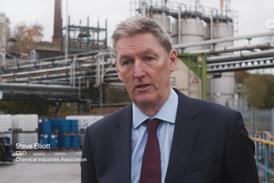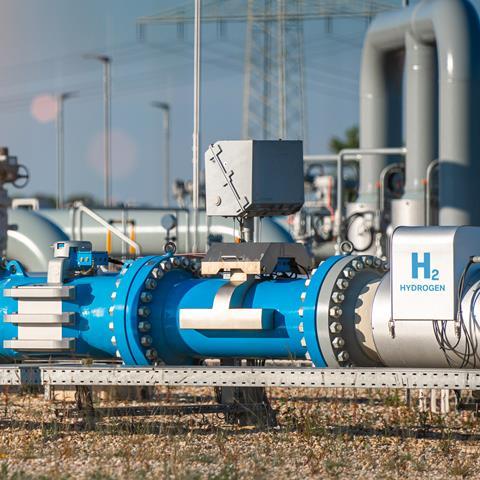To incentivise hydrogen production and enable industrial decarbonisation the government should permit UK ETS participants to purchase and surrender hydrogen certificates, to reduce their reported emissions under the ETS. The adoption of a low carbon gas certification scheme would be a small change to the UK ETS but could have an outsized impact on clean energy investment.
CIA agrees with the government’s assessment that low carbon hydrogen is essential to achieving the country’s Clean Energy Superpower and Growth Missions. Hydrogen presents significant growth opportunities across the UK by enhancing our energy security, providing flexible, cleaner energy for our power system and helping to decarbonise vital UK industries.
In 2023 the government published a strategic policy decision setting out the case for the blending of up to 20% hydrogen by volume into the GB gas distribution networks. The government is now consulting on blending of up to 2% into the transmission network, to assess the technical and economic feasibility, as well as the strategic implications for net zero.
Enabling the blending of hydrogen into the gas grid could help reduce risk to hydrogen investment by ensuring there is a guaranteed ‘off-taker of last resort’. Hydrogen projects will be developed on the basis of anticipated demand but if that demand does not materialise, or pipelines to ship the hydrogen are delayed, then being able to sell into the national grid would give investors greater certainty. Blending could also allow well-placed green hydrogen producers to make use of excess renewable electricity that would otherwise be curtailed.
Even so, blending comes with a cost and risk to the operations of the chemical sector that warrant further analysis. Hydrogen has different physical properties to natural gas which will have implications for on-site equipment (e.g. burners and compressors). A blended gas stream could cause particular issues for chemical sites that use natural gas as a feedstock, potentially requiring significant investment to mitigate a changing and more volatile gas mix. The gas blended into the grid will also be subsidised by the Hydrogen Production Business Model, which will be recovered from gas consumers through the Gas Shipper Obligation.
One benefit for the UK chemical sector would be that an increasing proportion of hydrogen in the gas grid would see a reduction in our heat-related emissions, at a time when other decarbonisation options are out of reach. As it stands, the electrification of heat is blocked by the high price of industrial electricity and a long wait for a grid connection, while government plans for dedicated hydrogen networks will only support a handful of sites in the major industrial clusters.
However, despite the real emission reductions that blending would facilitate, under the current rules of the UK Emissions Trading Scheme (ETS) UK manufacturers would not stand to benefit; Accounting rules in the carbon trading scheme do not make an allowance for hydrogen that has been blended into the national grid. This policy choice hinders the development of the hydrogen economy because it limits hydrogen demand from dispersed UK ETS sites (i.e. those that are located away from an industrial cluster). In doing so, the policy shuts off one of the few routes to decarbonisation UK manufacturers currently have.
To incentivise hydrogen production and enable industrial decarbonisation the government should permit UK ETS participants to purchase and surrender hydrogen certificates, to reduce their reported emissions under the ETS. A ‘book and claim’ system could instantly increase demand for hydrogen, as remote sites in hard-to-abate industries would be afforded a means to reduce their ETS compliance costs. In turn this should increase value for money for the government and bill-payer, by raising the sale price and reducing contract for difference payments under the Hydrogen Production Business Model. Greater demand should also stimulate the supply of hydrogen, by offering project developers an immediate route to market. The adoption of a low carbon gas certification scheme would be a small change to the UK ETS but could have an outsized impact on clean energy investment.






















